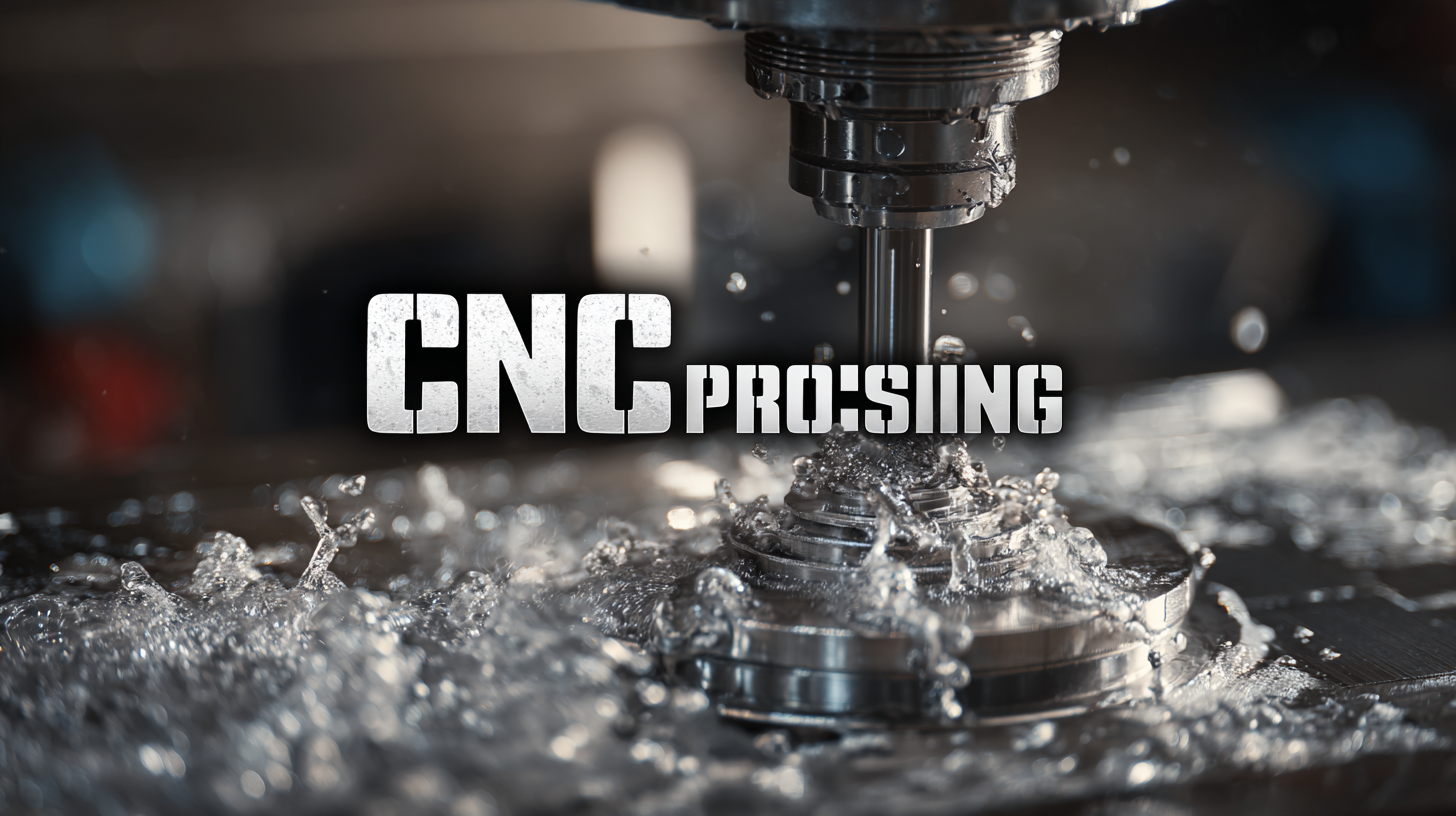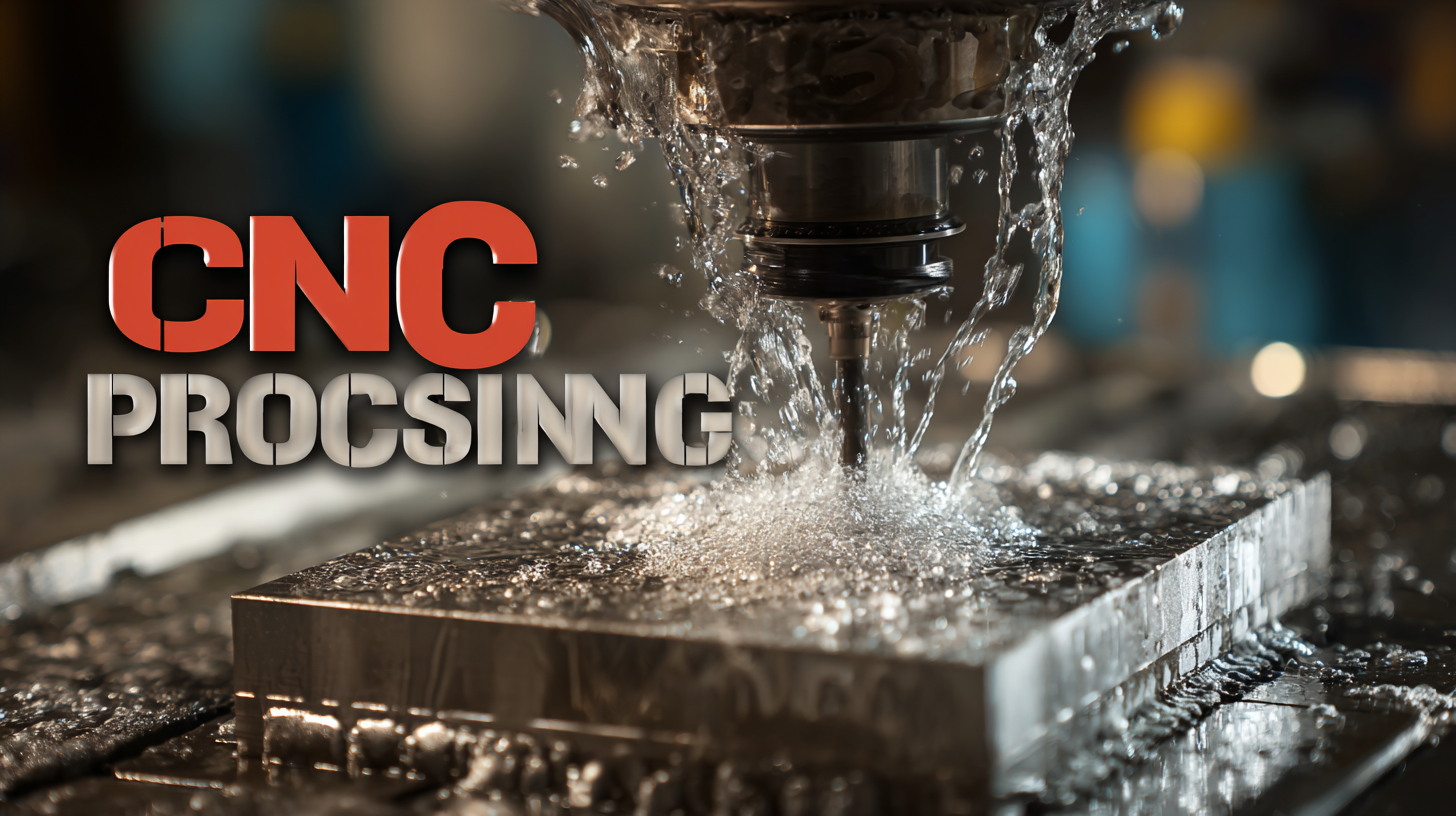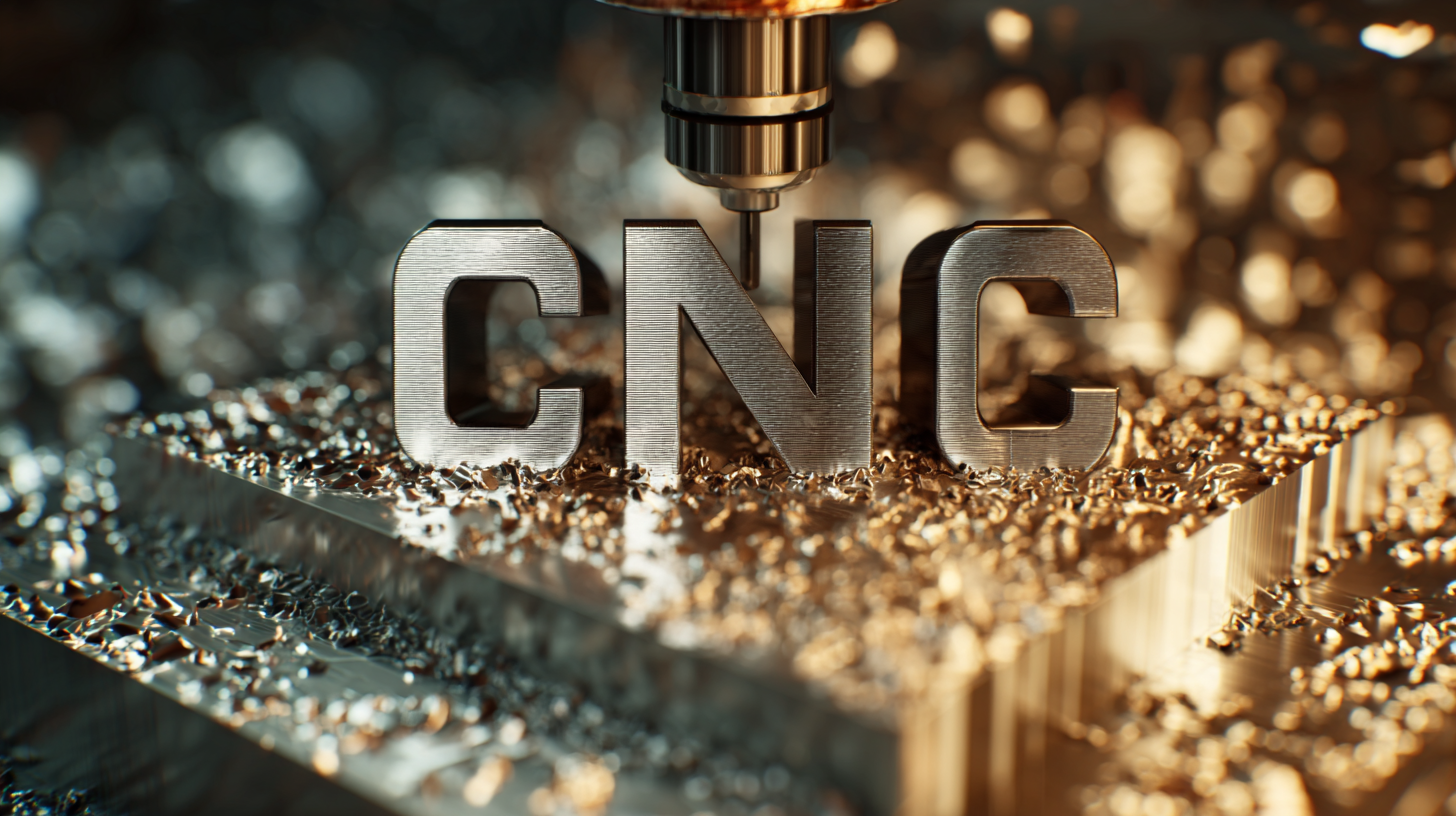In today's rapidly evolving manufacturing landscape, selecting the right CNC processing manufacturer can significantly impact the success of your projects. As we approach 2025, industry trends are increasingly leaning towards advanced technologies, automation, and precision engineering, making it essential to identify manufacturers that embody these advancements. The best CNC processing manufacturers not only offer high-quality machining but also adapt to the digital transformation reshaping the industry. This blog will guide you through the key factors to consider when choosing a CNC processing partner, including technological capabilities, production efficiency, and customer support. By understanding these elements, you can make informed decisions that lead to enhanced productivity and superior results in your manufacturing endeavors.

When selecting the best CNC processing manufacturers for your projects, there are several key factors to consider to ensure you make an informed decision. First, evaluate the manufacturer's experience and expertise in the specific type of CNC processing you require. With the global CNC machining market projected to grow at a compound annual growth rate of 4.9% from 2018, reaching a valuation of $29.17 billion by 2032, it is crucial to partner with manufacturers who have a proven track record and can demonstrate their capabilities.
Tips: Always ask for case studies or references from past clients to assess the manufacturer's reliability and quality of work. Additionally, look for companies that use advanced technology and machinery, as this can significantly impact the precision and efficiency of your projects.
Another important factor is the manufacturer's ability to offer customization and flexibility. The needs of industries such as automotive, precision machinery, and general engineering can vary greatly. A manufacturer that excels in tailoring their services to meet specific project requirements will better serve your long-term goals. Ensure they utilize the latest innovations in their processes to maintain competitive standards.
Tips: During your selection process, consider requesting a sample or prototype to judge the quality and precision of their work firsthand before committing to a larger production run.
When selecting a CNC processing manufacturer for your project, evaluating their experience and industry specialization is crucial. Manufacturers with a robust track record in the specific industry relevant to your project often possess valuable insights into the nuances of that field. They are more likely to understand the unique challenges and requirements, enabling them to deliver tailored solutions that meet your needs.
**Tip:** Look for companies with a portfolio showcasing successful projects similar to yours. This not only demonstrates their capability but also highlights their familiarity with the specific materials, technologies, or standards required in your industry.
In addition to experience, consider the manufacturer’s specialization. Some may excel in high-volume production, while others might focus on intricate, low-volume jobs. Understanding these distinctions can help you choose a partner that aligns with your project's scale and complexity.
**Tip:** Engage potential manufacturers in discussions about their past projects and sector expertise. Questions about their approach to different challenges can reveal their problem-solving skills and adaptability in your specific industry context.
| Manufacturer Type | Years of Experience | Industry Specialization | Certifications | Customer Satisfaction Rate |
|---|---|---|---|---|
| General CNC Machining | 15 | Automotive | ISO 9001 | 95% |
| Precision CNC Machining | 10 | Aerospace | AS9100 | 90% |
| CNC Routing | 12 | Furniture Production | ISO 14001 | 92% |
| CNC Turning | 8 | Medical Devices | ISO 13485 | 88% |
| CNC Milling | 20 | Electronics | IPC-A-610 | 93% |
When selecting the best CNC processing manufacturers for your projects, understanding quality control standards and certifications is essential. These benchmarks ensure that the manufacturers maintain consistent quality and adhere to industry-specific regulations. Look for certifications such as ISO 9001, which indicates a strong commitment to quality management processes. Certifications like ISO/TS 16949 are also crucial for manufacturers involved in the automotive sector, reflecting their expertise in meeting high-quality demands.
Tip 1: Always request documentation of their quality control processes. A reputable manufacturer will be eager to share their quality assurance measures and how they achieve compliance with necessary standards. This transparency not only builds trust but also gives insight into their production capabilities.
Tip 2: Investigate their history with past projects and customer feedback. A manufacturer’s reputation within the industry can be a significant indicator of their reliability and adherence to quality standards. Look for case studies or testimonials that highlight their ability to deliver precision and meet deadlines consistently.
By focusing on these quality aspects, you can confidently identify manufacturers that align with your project's requirements.

When selecting the right CNC processing manufacturer for your project, one critical aspect to evaluate is the level of customer support and the effectiveness of their communication channels. Research shows that companies with robust customer service frameworks have 3.5 times higher customer retention rates, underscoring the importance of reliable communication in fostering long-term partnerships. Understanding how manufacturers handle inquiries, respond to issues, and support clients throughout the production process can significantly influence your project's success.
Tips: Look for manufacturers that provide multiple communication channels, such as phone support, live chat, and email. This variety ensures that you can reach out for assistance in the way that is most convenient for you, and it can be a good indicator of their commitment to customer service.
Additionally, consider the presence of dedicated account managers or customer support teams. According to a survey by IndustryWeek, 80% of successful manufacturers attribute their growth to strong customer relationships. A dedicated point of contact can streamline communication, promptly address any challenges, and provide a personalized experience that enhances project outcomes.
Tips: Request a trial interaction or consultation with the support team before making any commitments. This will give you insight into their response times and the quality of assistance you can expect, allowing you to make an informed decision based on firsthand experience.
When selecting a CNC processing manufacturer for your projects, understanding the balance between costs and value is crucial. According to a report by Industry Week, CNC machining costs can vary significantly, with average hourly rates ranging from $40 to $150 depending on the complexity of the project and the manufacturer’s capabilities. This variability underscores the necessity of not solely focusing on price, but also on the quality of service and outcomes.
In 2022, a study by the National Association of Manufacturers revealed that businesses prioritizing value over cost saw a 20% increase in productivity. This suggests that investing in a slightly higher-cost manufacturer may yield better long-term results. Look for manufacturers that offer detailed breakdowns of their pricing models, transparency in their processes, and evidence of quality assurance measures like ISO certifications. By comparing multiple manufacturers not just on their quoted prices, but also on their capabilities, past project success, and customer testimonials, you can identify a partner that aligns well with both your budget and quality expectations.

